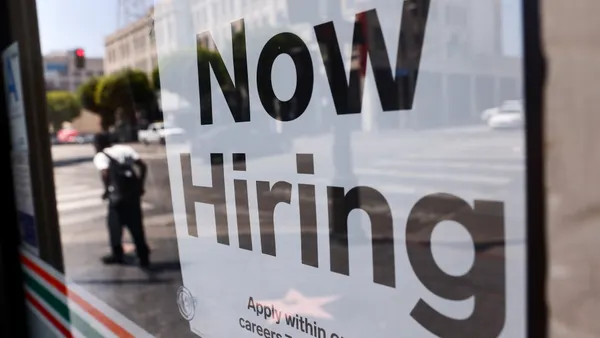Dive Brief:
- More than 80% of employers in a new Association of American Colleges and Universities survey said they believe higher education prepares college graduates for workforce success — though some executives find students lack certain skills.
- Only 49% of employers reported thinking, for instance, that graduates are very prepared in oral communication, according to AAC&U’s report published Thursday. But about 80% said they agreed graduates overall are ready for the workplace.
- The survey also found strong employer support for microcredentials and student and faculty freedom to discuss any topic on a campus.
Dive Insight:
Polls in recent years reflect a declining public trust in the value of higher education.
But AAC&U’s employer survey — the eighth it has commissioned since 2006 — shows a different picture among hiring managers and executives. The organization, which supports liberal arts education, surveyed 1,010 employers in May.
It found that more than 80% of respondents agreed that securing a college degree is worthwhile, even with the associated costs. Only 18% disagreed with that sentiment.
More than 80% also agreed that higher ed prepares graduates for entry-level work and advancing in a company.
Students are lacking in some skills employers find important, though. Only about half of respondents indicated students were very prepared in areas related to critical thinking and complex problem-solving.
For the first time in its survey, AAC&U asked what sort of knowledge graduates should possess entering the workforce.
About two-thirds of employers said they considered “knowledge gained from addressing real-problems” to be very important. That was a higher share than those who thought knowledge of certain disciplines was very important.
About half of employers said interdisciplinary knowledge, or knowledge of science, technology, engineering and mathematics fields, were very important.
Microcredentials came out on top when the survey asked about the qualifications employers prefer. Almost 70% said they would prioritize hiring a college graduate with a microcredential for an entry-level job. A college graduate without a microcredential was their next preference.
“This suggests that while a college degree is marketable, adding a microcredential is even better,” a survey summary states.
Other polls affirm that employers value alternative credentials, but often don’t know how to assess their quality.
Employers also seem to appreciate open speech on campuses. More than 80% of respondents agreed exposure to wide-ranging views can help prepare students for work, and a similar share said all topics should be up for discussion on a college campus.
Nearly 80% said they would look more favorably on institutions that respect diverse perspectives.
“This finding is of little surprise to anyone who has held a job,” the summary states. “Workplaces are often unpredictable, dynamic, and transitory. Being surrounded by co-workers who think or look just like you is the exception, not the rule.”














